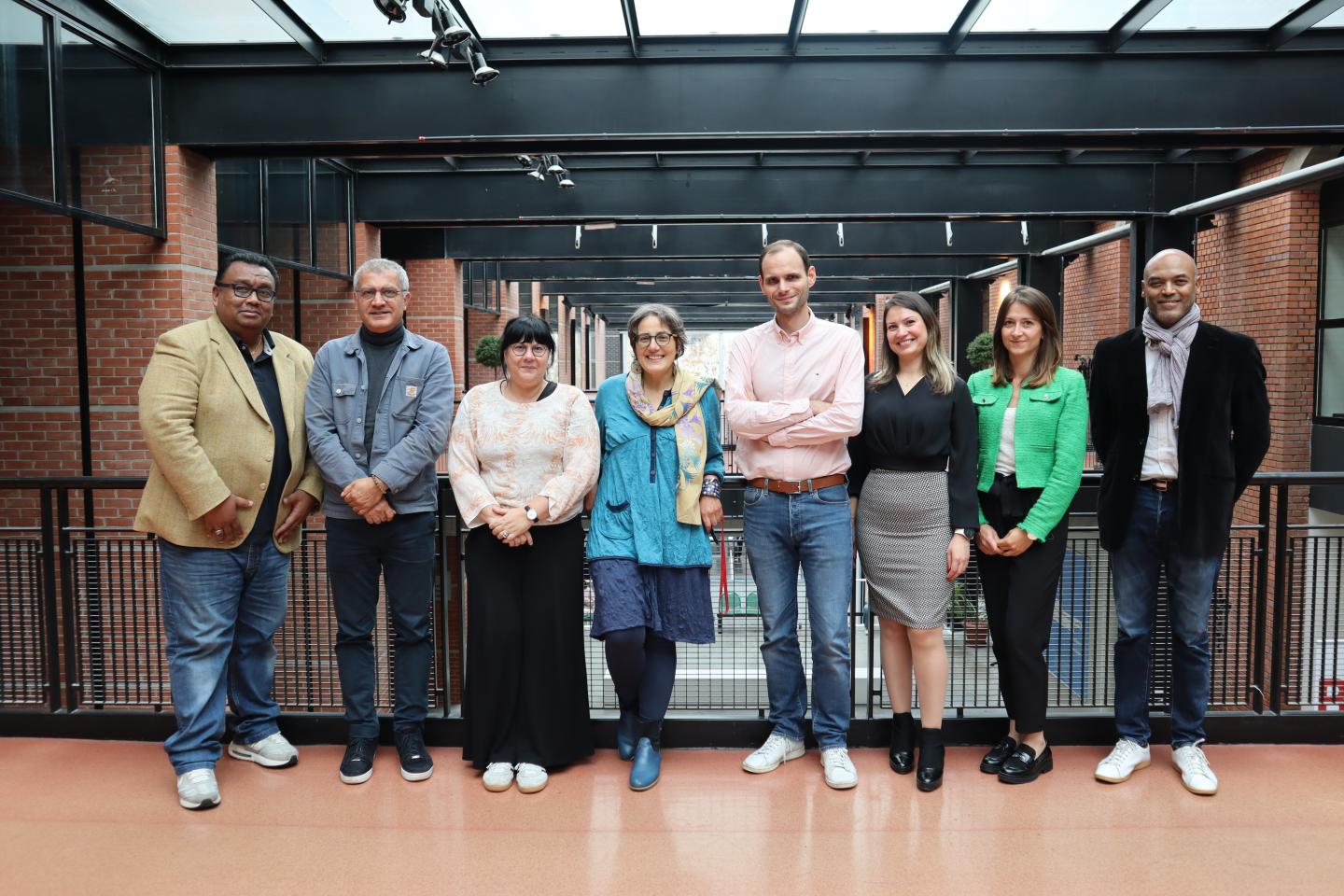Cluster RESPONS: Responsible Leadership in Practice(s)
Objective: to explore how responsible leadership is deployed within organizations and better understand how organizational practices are organized and/or reorganized for the sustainability of living ecosystems.
Overview
EM Strasbourg's research clusters bring together the School's professors, experts in various fields of management science, around transdisciplinary research themes. The aim is to develop innovative, high-impact research projects through high-level scientific collaboration.
RESPONS: Responsible Leadership in Practice(s) takes its name from the Latin verb Respondere. This name reflects the idea that responsible leadership in organizations involves not only practices but also people capable of responding collectively to the major contemporary challenges raised by the issue of ecosystem sustainability.
The RESPONS research cluster contributes to the Responsible & Sustainable Management for Change area of expertise. Drawing on the shared expertise of its members, in a multi-disciplinary management science approach, the research developed within the cluster aims to better understand how organizational practices are organized and/or reorganized in this context of transition for the sustainability of living ecosystems (human and nonhuman).
Project & Organization
The central question of our cluster is how emerging organizational practices—whether driven by macro-level incentives in the field of work and organizations, business model proposals from the associative world, or responsible leadership initiatives—can contribute to the transition to sustainability.
To explore this question, the concept of practice serves as an umbrella paradigm for recognizing the interest in looking at “what happens in practice” (Rouleau, Allard-Poesi & Warnier, 2007) in organizations. The cluster aims to explore how organizations—via practices involving human actors (people, groups, etc.) and nonhuman actors (laws, norms, routines, management instrumentation, etc.)—implement responsible leadership. The proposed concept of responsible leadership refers to the power to act in organizations, i.e. to innovative practices capable of contributing to the transition toward sustainability from an ecosystem perspective.
In order to address the way in which practices can constitute units of analysis for exploring what happens in organizations to contribute to transition and sustainability, the RESPONS cluster is developing three specific research orientations:
- Orientation 1. Practices for responsible governance
- Orientation 2. Practices for responsible leadership in non-profit organizations
- Orientation 3. Practices for responsible leadership: people and organizations
The first orientation, practices for responsible governance, focuses on exploring the socially responsible practices of companies, taking particular account of the ESG (Environment, Social, and Governance) approach. Here, our team examines how companies and organizations in general are adapting to the demands of CSR (corporate social responsibility), with implications for their internal strategies, particularly in a context of regulatory transition. We pay particular attention to unlisted companies, little investigated in the literature, where the links between CSR, governance, and finance have yet to be discovered.
The second focus, practices for responsible leadership in non-profit organizations, aims to analyze leadership within non-profit organizations, such as NGOs or social centers. Thanks to their capacity for social innovation, these organizations are crucial players in societal transformation. In our RESPONS cluster, we look at how these organizations mobilize specific resources, structure their governance, and create alliances, particularly in local initiatives such as the circular economy. The role of volunteer administrators is also a key focus of our work.
Finally, the third orientation, practices for responsible leadership: people and organizations, focuses on the evolution of sustainable leadership and people management practices, particularly with the growing adoption of robotics and artificial intelligence in the workplace. We are interested, for example, in training schemes for leaders to enhance their awareness of sustainability issues. We explore specific dimensions such as gender or diversity of functions within organizations, as well as practices promoting diversity, equality, and inclusion (DEI).
The aim is to develop and support a range of communication and publication projects for the academic community and the general public, both within and across the three orientations.
Cluster Members
- Géraldine Broye – Finance – LaRGE
- Pauline Johannes - Accounting / Audit - LaRGE
- Amal Jrad – Strategy– HuManiS
- Vivien Lefebvre – Finance – LaRGE
-
Babak Mehmanpazir – Strategy– HuManiS
-
Aline Pereira Pündrich – Strategy– HuManiS
- Lovanirina Ramboarison-Lalao – Human Resources – HuManiS
- Stéphano Vacher – Sales Management / Negotiation – HuManiS
-
Jocelyne Yalenios - Human Resources / Organization Theory - HuManiS

